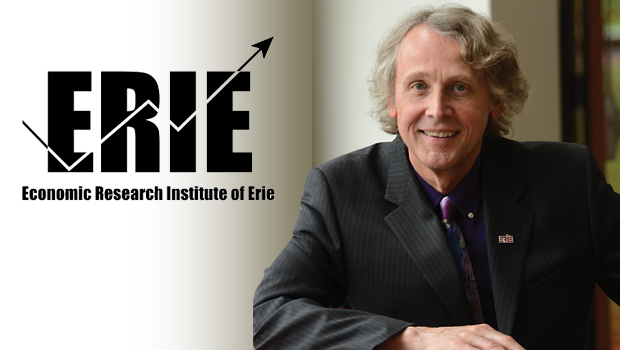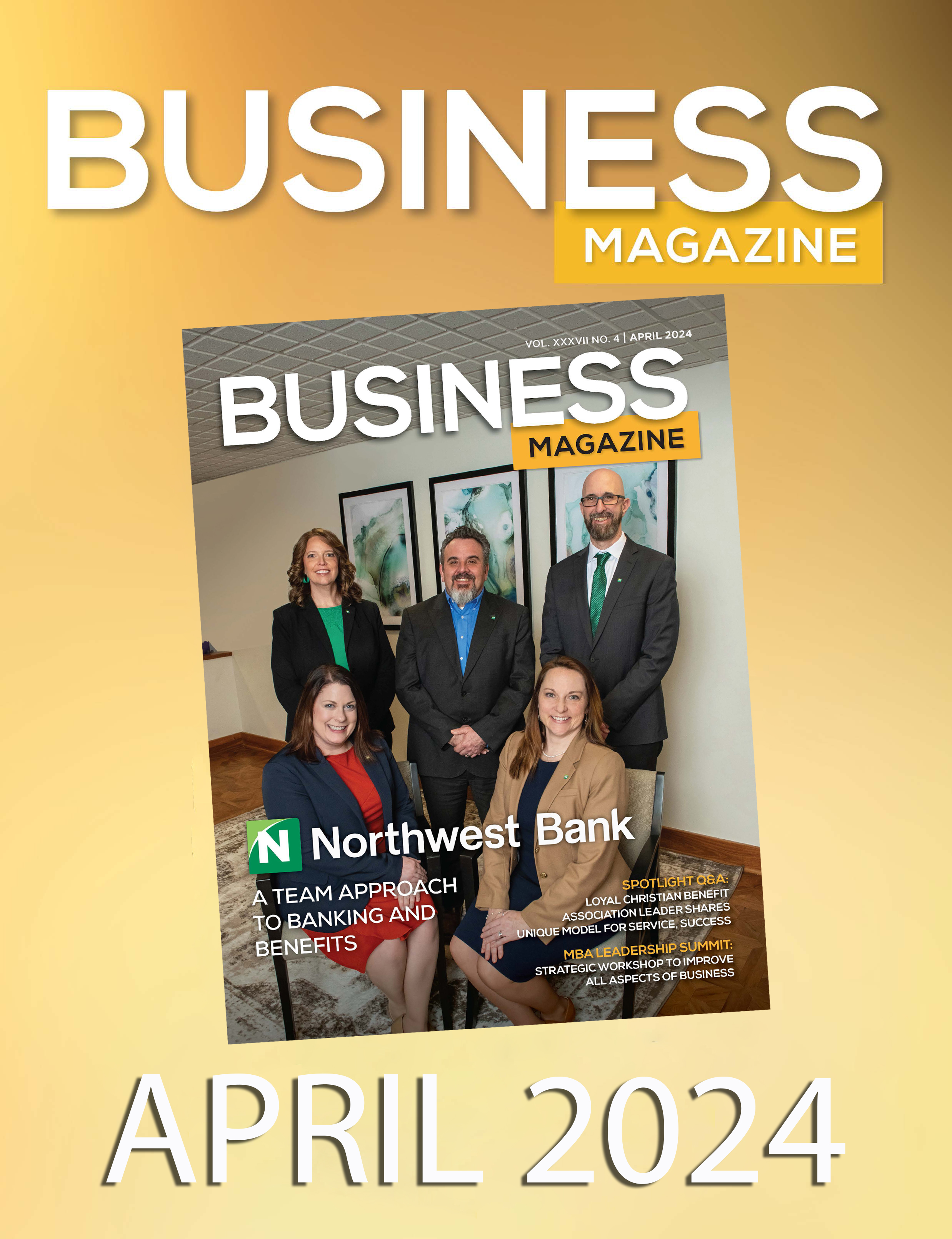The importance of economics education goes far beyond understanding the basic principles of supply and demand and the workings of our nation’s economy. Economics is also the study of how people make sound choices, which can influence both individual and business success. James Kurre, Ph.D., director of the Economic Institute of Erie (ERIE), which collects, analyzes, interprets, and disseminates data and the resulting knowledge related to Erie County’s economy, recently shared his thoughts on education, economics, and what’s in store for ERIE’s future.
You recently retired after 37 years of teaching economics as an associate professor at Penn State Erie. Tell us what attracted you to teaching economics here in Erie for so long.
Frankly, when I applied to Erie, I didn’t even know where it was. I had to look it up on a map. As I was finishing my graduate studies in Detroit, I applied for many, many academic jobs. Behrend was kind enough to invite me for an interview, which was my first commercial flight ever. (It was in early April and the Erie airport was snowed in, so I somehow wound up on a bus from Pittsburgh.)
When Behrend gave me a job offer, I expected to stay for a year or two while I finished my dissertation and then move on to a big city. Suddenly, it’s 37 years later! But seriously, Behrend turned out to be a great place for me. This job has taken me across the globe and given me the chance to be involved in many neat projects. And I’ve had some wonderful experiences with my students. (Well, most of them.) In fact, five of my former students now teach in the Black School at Behrend.
Henry Ford once said, “anyone who stops learning is old, whether at 20 or 80.” What is the most valuable lesson you learned about education during your tenure?
First, full disclosure: I haven’t owned a Ford since my 1969 Torino GT, which left me stranded for a while beside a Kansas sunflower field in 1972. But I do like his quote! A key thing I discovered during all those years in the classroom is that most students will rise to the level you expect of them. If you set the bar low, you’ll get low performance. If you set the bar high and tell them why they should expect a lot from themselves, they’ll perform at a higher level — and, hopefully, they’ll learn a life lesson about themselves in the process.
By studying economics, our young people can also learn how to make efficient and informed choices. What message do you want to share with these students about the importance of economics education and how it can benefit them?
A key theme of all my classes has been “what’s this have to do with you, right now?” Econ can be pretty arcane and abstract, but most fundamentally it’s about how to make decisions. And when students see how it can help them make important — and even minor — decisions now, they start to get into it. In the best cases, students leave my classes understanding how to use Econ in their own lives, and also better understanding why other people do what they do, and how the world really works. More broadly, I hope to help them see their college classes not as a bunch of hoops to jump through, or class periods to be endured, but rather as opportunities to learn interesting and useful stuff that will turn them into the people they’d like to be.
During past economic forecasts that you’ve presented at the Association, you have always indicated that education is one of Erie’s strengths and thriving industries. How do you see this impacting our area in the future?
The success of the local colleges, including LECOM (Lake Erie College of Osteopathic Medicine), is one of the key bright spots in Erie’s economy, no doubt about it. Although this sector only accounts for a relatively small share of local employment and income, it is a direct link to Erie’s future. Because of the colleges, some of the best and brightest kids (and increasingly, nontraditional students) from around the world come to Erie for a few years. We get a shot at keeping them here!
Erie’s age demographics tend a bit to the older side, and doing a better job of keeping more of our grads (both our own kids and other peoples’) would be a great way to help rejuvenate the economy. Some of that is already going on. But I’d encourage your readers to consider adding or expanding their (paid) internship programs. Doing so has clearly worked very well for some local firms, like FMC. It’s a win-win-win — for the firm, the student, and the region.
Each year, ERIE hosts its highly anticipated Economic Conference. What do you have planned for the 12th annual event?
We’re planning for the 12th ERIE Economic Conference to focus on manufacturing, a very important topic for Erie and for your readers! We hope to bring in a nationally known speaker. But we’re working through some administrative issues related to my retirement from teaching, so we’re not quite sure when the conference will be. We’ll be sure to let you and your readers know as soon as we nail it down.
Read more in the August 2014 edition of the Business Magazine.













